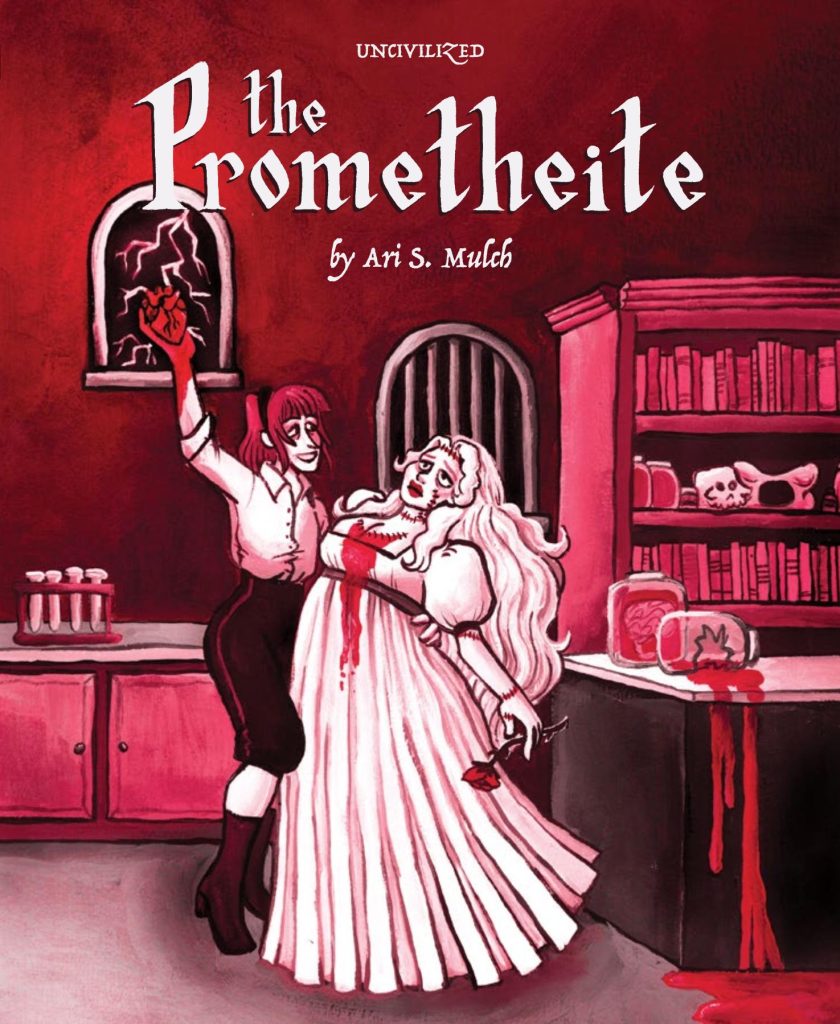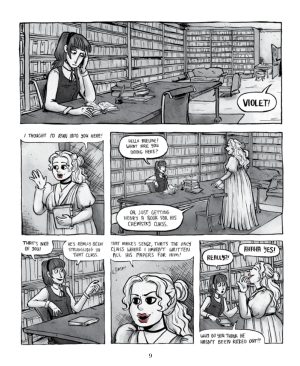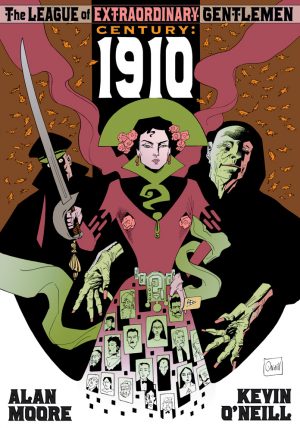Review by Karl Verhoven
The theatrically staged cover firmly establishes the gothic horror setting of The Prometheite to the point where you’ll expect to hear a thunderclap whenever you glance at it. It’s a mood very deliberately cultivated by Ari S. Mulch, and she makes frequent use of sound effects and lightning strikes as we learn of Violet’s problems.
In 1879 she’s studying anatomy in Ingolstadt when she meets Aveline, sister of a fellow student. Violet prefers to wear men’s clothing, something that isolates her from other students, but the novelty is attractive to Aveline, who spends as much time as possible with Violet, her forthright seduction appealingly depicted by Mulch. “Her quick wit and bold personality contrasted my own contemplative nature”, notes Violet’s narration, “We complemented one another perfectly”. The blossoming romance is however cut short by the rapid onset of Aveline’s severe illness and subsequent death.
Mulch pulls off a clever trick with The Prometheite, because while her gender-switching retelling of Frankenstein is obviously darkly humorous, there’s nevertheless a considerable emotional pull to the cast, with Violet sympathetically drawn. A nice touch is dark patches beneath her eyes. Mulch also channels the more expected gothic trappings, but in general keeps the surroundings plain, which ensures attention is on the people. This is especially effective during an erotic poetry reading.
Without following Frankenstein exactly, Mulch duplicates certain elements, so halfway through the narration switches from Violet to Aveline, and a different set of concerns manifest, these more broadly following the ethical themes of Mary Shelley’s novel. Is there a price to be paid for messing with what should be the province of god? Inevitably there is, and Mulch practically begins by noting The Prometheite as a tale of doomed love. As such it’s novel and fulfilling.





